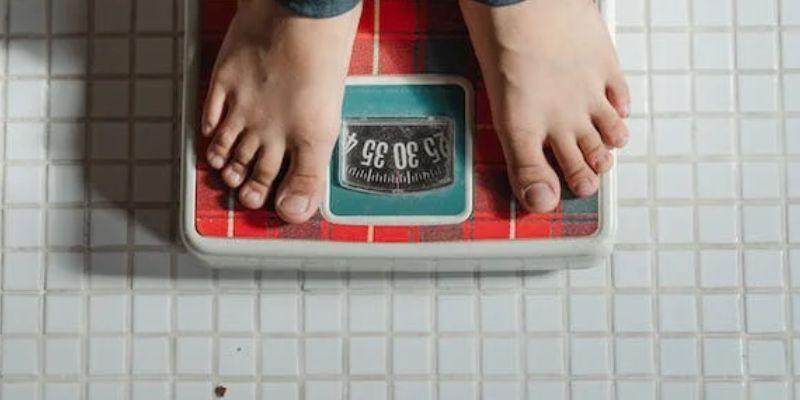Exploring Various Approaches to Sleep Disorder Treatments
Jan 03, 2024 By Madison Evans
Sleep disorder treatments are changing the way people think about their sleeping habits and how to achieve a healthy lifestyle. With an estimated 50-70 million adults in the United States suffering from chronic sleep problems, it is no surprise that researchers and medical professionals have been working hard to improve treatment strategies for those affected. In this blog post, we'll explore some of the various approaches to sleep disorder treatments available today, and shed light on new developments that may make dealing with your sleep health easier in the future.
Understanding the Different Types of Sleep Disorders:

Sleep disorders are classified into several categories, each with their own unique characteristics. These categories include insomnia, sleep apnea, restless leg syndrome (RLS), and narcolepsy. Understanding the different types of disorders can help you determine which type of treatment may be best suited for your particular situation.
- Insomnia: Insomnia is a sleep disorder characterized by difficulty falling asleep or staying asleep. Symptoms include excessive daytime sleepiness, irritability, fatigue, and difficulty concentrating. Treatment for insomnia typically includes cognitive behavior therapy (CBT), relaxation techniques, medications, and lifestyle changes such as creating a regular sleep schedule.
- Sleep Apnea: Sleep apnea is a serious medical condition in which breathing stops or becomes shallow during sleep. Symptoms can include loud snoring, feeling sleepy during the day, and waking up with a dry mouth or headache. Treatment options for sleep apnea include lifestyle changes such as weight loss, quitting smoking, avoiding alcohol before bedtime, and CPAP machines.
- Restless Leg Syndrome: RLS is a neurological disorder in which sufferers experience an irresistible urge to move their legs, usually accompanied by an uncomfortable feeling. Treatment options for RLS include lifestyle changes such as reducing stress and avoiding caffeine, medications such as dopamine agonists and anticonvulsants, and physical therapy or massage.
New Developments in Sleep Disorder Treatments:
Research in the field of sleep disorder treatments is constantly evolving, offering new and innovative ways to address common issues. New developments such as digital therapeutics and online cognitive behavior therapy are helping people manage their conditions with greater convenience and flexibility than ever before.
Digital therapeutics use technology to provide access to treatment options that are tailored to an individual’s needs. This form of treatment has been used for years in the management of chronic pain, depression, and anxiety, and is now being applied to sleep disorders.
Tips for Improving Your Sleep Hygiene:

- Establish a regular sleep schedule and stick to it.
- Avoid caffeine, nicotine, and alcohol in the evening.
- Exercise regularly, but not immediately before bedtime.
- Avoid screens (laptops, phones, TVs) in the hour before bedtime.
- Make your bedroom comfortable and conducive to sleeping: keep it dark, quiet, and cool.
- Avoid napping during the day, or if you must nap limit it to 30 minutes.
- If possible, get up at the same time every day regardless of your sleep schedule.
- If you are unable to fall asleep after 20 minutes, get out of bed and do something relaxing until you feel sleepy.
Natural Remedies and Non-Medication Approaches to Treating Sleep Issues:
Medical treatments, there are several natural and non-medication approaches to treating sleep issues. These include therapies such as acupuncture, yoga, mindfulness meditation, and aromatherapy.
Acupuncture is an ancient Chinese practice based on the belief that illness or pain manifests when energy pathways in the body become blocked. An acupuncturist will place very thin needles at specific points in the body to unblock those energy pathways and promote healing.
Yoga, mindfulness meditation, and aromatherapy can all be used to reduce stress and anxiety, which can help improve sleep quality. Yoga is a form of exercise that focuses on controlled breathing and movements to relax both your mind and body.
Consulting with a Professional to Find Out More About Treatment Options:
If you are looking for more information about sleep disorder treatments, it is important to consult with a doctor or medical professional. They will be able to provide an accurate diagnosis and recommend the appropriate treatment option for your situation. In addition, they can also provide advice on lifestyle changes that may help improve your sleep hygiene, such as avoiding caffeine late in the day, avoiding late night meals, and establishing a regular sleep routine.
Conclusion:
Sleep is an essential part of a healthy lifestyle, and sleep disorders can have serious consequences if left untreated. It is important to take the time to learn about sleep disorders and treatment options, so you can make informed decisions about your health. With the right knowledge and resources, it is possible to manage sleep issues and achieve restful nights of quality sleep.
FAQs:
Q. What are the symptoms of sleep disorders?
A. Common signs and symptoms of sleep issues include difficulty falling asleep or staying asleep, excessive daytime tiredness, irritability, and cognitive problems such as memory lapses. If you experience any of these symptoms consistently, it is important to consult with your doctor for a diagnosis and treatment plan.
Q. How can I improve my sleep hygiene?
A. Improving your sleep hygiene involves establishing a regular sleep schedule, avoiding screens (laptops, phones, TVs) in the hour before bedtime, avoiding caffeine and nicotine in the evening, exercising regularly but not right before bedtime, and making your bedroom comfortable and conducive to sleeping.
Q. What are some natural or non-medication approaches to treating sleep issues?
A. Natural and non-medication approaches to treating sleep issues include therapies such as acupuncture, yoga, mindfulness meditation, aromatherapy, and lifestyle changes such as establishing a regular sleep schedule and avoiding caffeine before bedtime. If you are looking for more information about these treatment options, it is important to consult with a medical professional.







